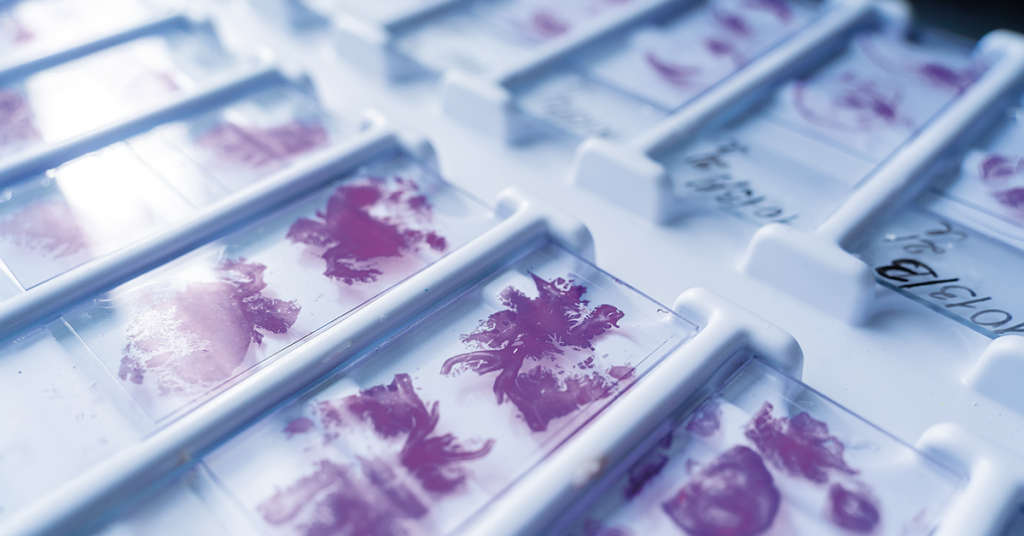Biopsies are crucial diagnostic aids in the diagnosis and treatment of prostate cancer. However, there are many misconceptions or myths surrounding biopsy that can worry more than one patient. A clarification can therefore be useful if you are resistant to the idea of having this intervention, following your readings on the internet…
Most cancers are diagnosed and classified based on the results of a biopsy, and many types of treatment are decided based on these results. When it comes to prostate cancer, the earlier it is diagnosed, the better your chances of a complete cure with treatment.
Medically reviewed by the surgeon-urologist Dr. Thierry Lebeau on 03/23/2022
Myth: Biopsy is a dangerous operation
Fact: As a general rule, all surgeries and medications carry risks, the only difference being the extent of the damage that this procedure would cause. It’s always good to weigh the risks against the benefits, and for biopsies in most patients, the benefits outweigh the risks involved.
Myth: Biopsy causes cancer to spread
Fact: For many years, patients and even some doctors believed that cancer cells could spread to other parts of the body after a biopsy. However, there is not enough proper scientific evidence to support this notion.
However, there are exceptions that doctors and surgeons are aware of. For example, a needle biopsy is not usually used to diagnose testicular cancer. Instead, if a doctor suspects testicular cancer, the testicle is removed.
To dispel this belief, a study was performed by researchers at the Mayo Clinic campus in Jacksonville, Florida. The study concluded that patients who had a biopsy had better outcomes and longer survival rates compared to patients who had refused to have a biopsy.
Myth: Biopsy always requires hospitalization
Fact: Most biopsies are minor procedures performed on an outpatient basis. For prostate cancer, usually between 6 and 12 samples (sometimes more) of prostate tissue are collected and the whole procedure takes about 10 minutes. Local anesthesia may be used to numb the area and limit pain.
Myth: Biopsy has significant side effects
Reality: As with all surgery, there are risks, albeit very minor ones. Biopsies rarely cause bleeding, infection, and scarring. For prostate cancer, for example, there is a low risk of infection after a biopsy. This is why you are prescribed antibiotics to reduce the risk.
In conclusion – It is a very safe procedure, as evidenced by the 1,600 prostate biopsies performed annually at the CHUM. Also, while prostate cells cannot be said to regenerate, rest assured that a biopsy won’t leave any holes or marks in your prostate.
As not everything is black and white, your results of an imaging test like mpMRI or those of a biopsy, if you undergo one, should always be supervised and explained by your specialist and not Google.
Take the time to visit each of our pages on this website, as well as our YouTube channel, in order to get familiar with the disease, our expert lectures and webinars, our section on available resources, the support that is offered to you, our events and ways to get involved in advancing the cause.
You have questions or concerns? Don’t hesitate. You can chat with us or contact us at 1-855-899-2873 to discuss with one of our nurses specialized in uro-oncology. They are there to listen, support and answer your questions, as well as those of your family or loved ones. It’s simple and free, like all of our other services.
Webinar to review
Understanding your biopsy report
Pages on our site that might interest
you Want to know more? Just click on one of the links below
All about biopsy and diagnosis
Choosing your treatment
PROCURE blog articles that might enlighten you
Every week, we publish a blog article. Here are a few for you.
What is a PI-RADS?
Miracle foods for a healthy prostate!
Scared to death of having a biopsy?
Written by PROCURE. © All rights reserved – 2022



